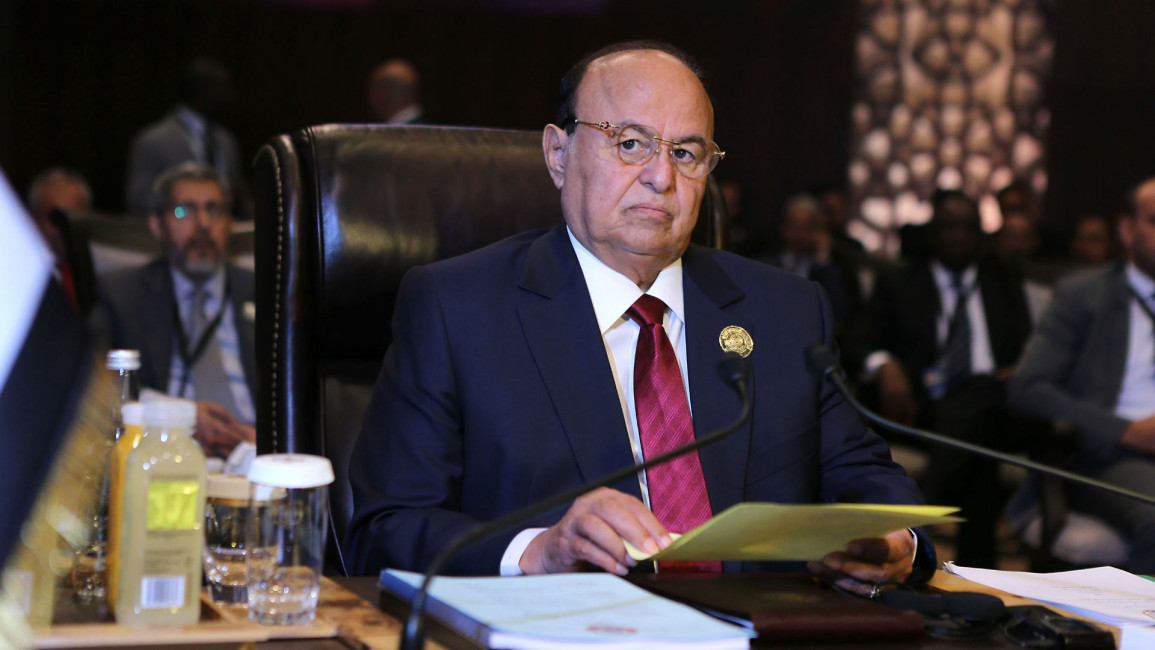UN envoy meets Yemen president in push for Hodeida truce
The UN envoy for Yemen met with the country's embattled president in another round of talks aimed at brokering a truce between the government and rebels on Tuesday.
The meeting between Martin Griffiths and President Abedrabbo Mansour Hadi saw the two discuss "the prospect of peace”, the state-run Saba news agency reported.
Griffiths told state media that he and the president had discussed the possible resumption of political negotiations between Yemen's government and Houthi rebels, who overran the capital and other major cities in 2014, forcing Hadi to move to Aden before relocating to Riyadh.
Griffiths also floated the idea of "prisoners being released and exchanged”, he said, following press reports of secret prisons in Yemen where inmates have been subject to torture.
The Yemeni government has announced it would be investigating prisons in areas under its control.
The government, backed by the United Arab Emirates (UAE), Saudi Arabia and their regional allies, is battling the northern-based rebels for control of the impoverished country.
The conflict is now centred on the Red Sea city of Hodeida, home to the country's most valuable port and controlled by the Houthis.
On June 13, Yemeni forces supported on the ground by UAE troops, launched a major offensive to retake Hodeida, the entry point for some 70 percent of imports to a country where eight million people face imminent famine.
On July 1, the UAE announced it had halted the offensive to give a chance to UN diplomatic efforts.
On Thursday, Griffiths briefed the UN Security Council on his latest talks in Yemen, after what he said was a "fruitful" discussion with rebel chief Abdulmalik al-Houthi, in a rare confirmation of direct talks between the two.
Despite the efforts, no truce has yet been reached between the government and rebels on Hodeida.
More than 10,000 people have been killed in Yemen since Saudi Arabia and its allies intervened in the country's civil conflict in 2015, in what the UN has described as the world’s worst humanitarian crisis.
Saudi-led airstrikes have killed large numbers of civilians and damaged vital infrastructure.
The coalition also has blocked most ports, letting supplies into Hodeida in coordination with the UN.
The air campaign and fighting have disrupted other supply lines, causing an economic crisis that makes food too expensive for many to afford.

![Trump's warm greeting to Netanyahu contrasted with Kamala Harris's critical reception [Getty]](/sites/default/files/styles/image_212x120/public/2024-07/GettyImages-2162908988.jpg?h=69f2b9d0&itok=uRh_9WXh)
![The brutal assault on Khan Younis has killed dozens and displaced thousands more [Getty]](/sites/default/files/styles/image_212x120/public/2024-07/GettyImages-2162526709.jpg?h=d3eda8cf&itok=HCP84AvQ)
![Members of the Algerian delegation threw roses into the Seine [Getty]](/sites/default/files/styles/image_212x120/public/2024-07/GettyImages-2162980872.jpg?h=199d8c1f&itok=PDhNyMBE)